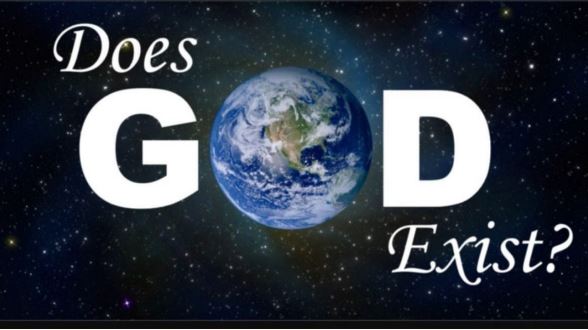
10. Probability and creationism
The simple concept of probability indicates that in a situation that has many possibilities, the chances of a specific and favorable occurrence occurring are low. Let’s apply this to the situation at the beginning of the universe. The chances of a high chaos, entropy, and explosive energy situation turning into an intricate system with beautiful creations seem extremely low. The concept of channeled creation guided by an intellect is a possible explanation for this phenomenon. Let’s continue with this in the next point.
9. Fine adjustment
The various scientific and mathematical constants, such as Planck’s constant, the speed of light, the rate of expansion of the universe, etc., had to be accurate to many decimal places to guarantee the creation of the universe. A small change in any of these values (such as the change of 1 in 10 ^ 23 units in Avogadro’s number) would cause the entire interdependent system to collapse. This also shows a clever fine-tuning of the creation.
The theory that these perfect conditions are one of many occurrences where rest has failed (multiverse theory), makes little sense given the amount of complexity and precision required along with supporting laws that cannot be created randomly. . Let’s discuss this below.
8. Laws of the universe
The laws of science and mathematics are said to have guided chaos to current reality in steps. This hypothesis still does not explain the fine tuning of the universal constants themselves and leaves an obvious question. How were these precise laws created? They appear to be the work of an artist rather than a random set of rules.
Let’s say that the chances of creating the current universe based on randomness and random laws are as good as the chances of putting together a bunch of binary codes based on random and irrelevant ideas, to finally create a complex computer simulation.
7. Irreducible complexity
The concept of evolution implies that there are small changes in each new generation of a living being and if that change helps it to survive in new conditions, it thrives better and reproduces more, thus amplifying those small useful changes. Over time, small changes add up to create big changes, while those without useful changes just disappear. This certainly explains the changes in organisms over time, doesn’t it?
Many complex features, such as eyes or lung cilia, etc., are useless in their simplest forms, and do not provide any survival advantage in their simplest forms. For example, removing or simplifying any component of the eyes or cilia would render them useless. This means that the step-by-step creation model with small changes in each step, fails in cases of complex characteristics. Small steps will not be selected as they do not provide any survival advantage, so how do we get such a complex shape?
Such examples are everywhere and can only be explained by the existence of a creator who channels the mutation process (small genetic changes) in the right direction for complex creations.
6. Life
Life itself is a case of low probability and irreducible complexity. The precise conditions for the existence of life include a rocky planet at the correct distance from a star, a large planet at the correct distance to deflect asteroids (Jupiter), the presence of correct atmospheric components that come together perfectly in the correct proportion to form life, etc. These conditions are very unique and their co-occurrence is highly unlikely if left to chance. More intricate creations were required after each mass extinction, leading to an epitome today. This is another indication of guided creation.
It is often argued that life on earth is a haphazard creation and that is why there is no evidence of extraterrestrial life despite long searches. The reality could simply be mass extinctions. After reaching a high degree of intelligence and development, a species is likely to make fatal mistakes or die due to severe environmental changes. After all, at one point, we had dinosaurs ruling the earth and now all that remains are fossils. Furthermore, humanity cannot survive the sun and has no practical or imaginable way of reaching another habitable planet in time.
Life has clearly established limitations that seem to have been cleverly put together to keep it in check.
5. Matrix theory and artificial intelligence
While this concept remains a hypothesis as of now, the idea that the universe is simply a simulation is gaining popularity. After all, we have run complex computer simulations with high-end computers and software. We have literally created time and space as simulations and we have also created artificial intelligence that we can control along with selective breeding. In fact, we can create video game characters that have their own intelligence and can react according to the changing variables in a time frame. Many of our scientific creations also resemble nature, showing that an intelligence like ours could be behind natural creations and vice versa. Couldn’t all of this be applied at a very high level by a great intellect to create the entire universe? The matrix theory seems like a solid argument, at least in part, for the existence of God.
4. Morality and advanced intelligence
Why do most advanced life forms have morals that tell them what is right and what is wrong? It can be argued that morale has benefited animals in group survival and is therefore the result of classical evolution. But this does not explain the cases of negative and antisocial emotions or thoughts that are also very present. What is the purpose of a wide variety of emotions and moral sense? And why is intelligence more amplified in certain animals like humans while others survive well with less intelligence? All of this seems like a case of guided evolution where organisms have been given various unnecessary attributes as a creative gesture.
After all, it is not natural for a process like evolution, which has made beautiful and precise creations, to leave mistakes or create excess. The sense of morality and humanity, its long-term rewards, and the appeal of immoral things are logically attributed to a test from God.
3. Time and energy
Time has been shown to be relative to the perceiver according to Albert Einstein’s Laws of Relativity. This means that there is no absolute value of time. But the changes occur in an absolute time frame, leading to chains of cause and effect. There has to be an absolute frame of time and space that exists outside of the known world. External factors would also provide the raw materials for the creation of the universe, since mass and energy cannot be created from nothing. These indicate external factors with powers that we cannot understand.
2. Light
Also, light is an ideal solution to the above paradox! Light is a pure form of energy that can be condensed into any mass based on e = mc ^ 2. And it doesn’t have a relative time frame since time stops at the speed of light. It is the perfect, universal and timeless creation tool. But it has no creative power of its own. And it is simply pure energy that must be harnessed by precise fine tuning and intelligent laws, as seen in the first points. Such energy must be precisely controlled by a supreme power or it would be destructive and uncreative.
1. Near death experiences
They are experiences in which people on the verge of death have a spiritual experience with a formless energy along with very pleasant feelings and flashbacks of life or other situations that they did not remember / know otherwise. People make similar reports despite very different backgrounds and various conditions. Science has yet to offer a convincing and complete explanation despite decades of research on the phenomenon. After all, how do you explain the experience of people seeing their own birth? Blind people who see clearly, miraculous health recoveries, people who remember images of their own surgeries; Supernatural images that would otherwise be unimaginable, meeting invisible predecessors, feel timelessness and very pleasant sensations? The cases are correctly explained only by the concept of God.
We can conclude that science provides effective evidence for God. Furthermore, many fundamental questions remain unanswered and even outside the realm of science; Unless it is backed by the idea of a supreme power. In other words, science and God complement each other.
Also, a look at spiritual beliefs and their sustained popularity in modern times; Furthermore, it shows that the concept of God has not lost its relevance and seems to be instinctively present in human intelligence. It is clear that the idea of God not only complements science and logic, but also satisfactorily answers fundamental questions about life and its events. Hence it remains relevant.
Therefore, as the 10 points validate, we must progressively use science as a tool to better understand and appreciate God’s presence.





